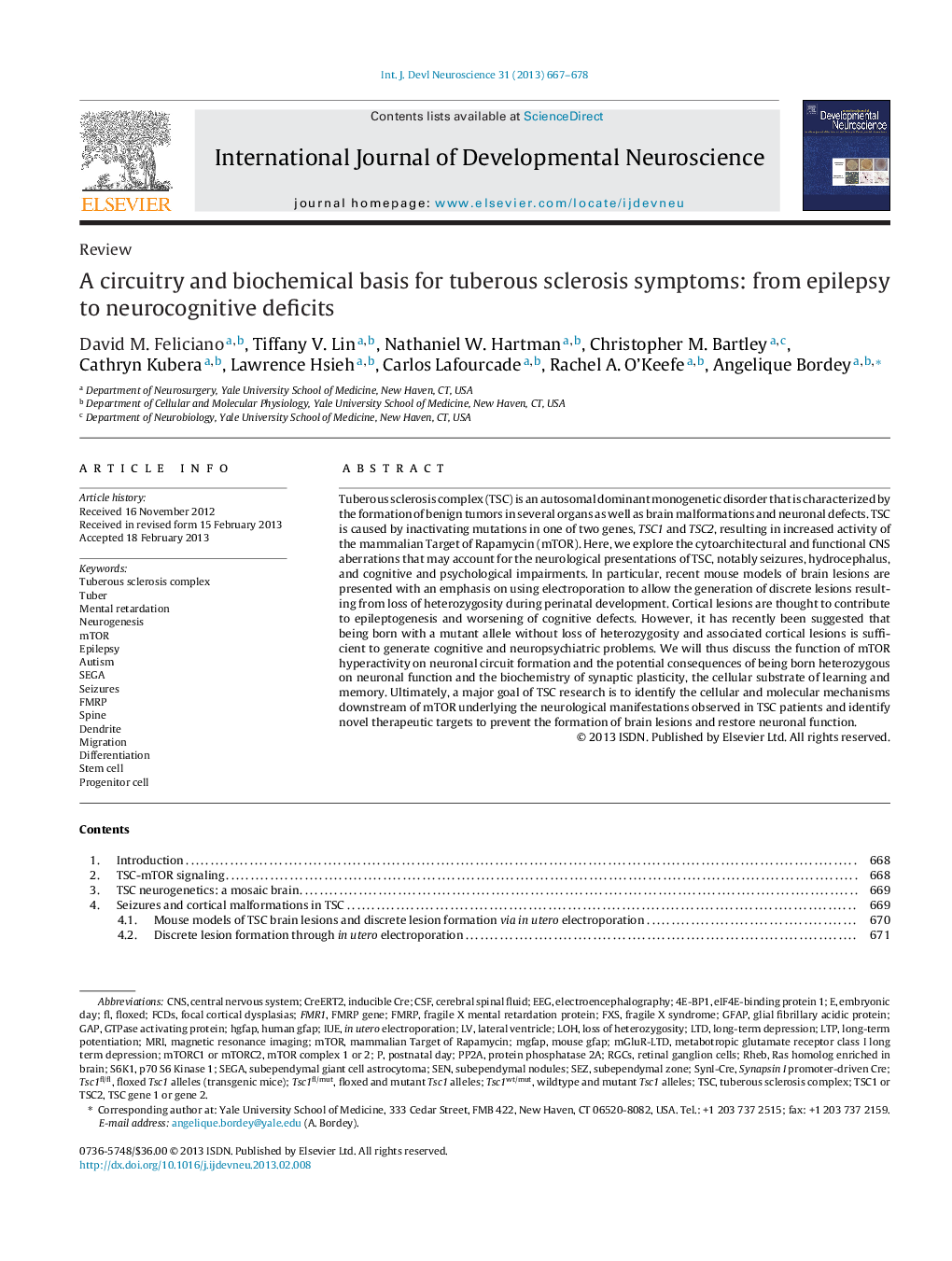| Article ID | Journal | Published Year | Pages | File Type |
|---|---|---|---|---|
| 5893954 | International Journal of Developmental Neuroscience | 2013 | 12 Pages |
Tuberous sclerosis complex (TSC) is an autosomal dominant monogenetic disorder that is characterized by the formation of benign tumors in several organs as well as brain malformations and neuronal defects. TSC is caused by inactivating mutations in one of two genes, TSC1 and TSC2, resulting in increased activity of the mammalian Target of Rapamycin (mTOR). Here, we explore the cytoarchitectural and functional CNS aberrations that may account for the neurological presentations of TSC, notably seizures, hydrocephalus, and cognitive and psychological impairments. In particular, recent mouse models of brain lesions are presented with an emphasis on using electroporation to allow the generation of discrete lesions resulting from loss of heterozygosity during perinatal development. Cortical lesions are thought to contribute to epileptogenesis and worsening of cognitive defects. However, it has recently been suggested that being born with a mutant allele without loss of heterozygosity and associated cortical lesions is sufficient to generate cognitive and neuropsychiatric problems. We will thus discuss the function of mTOR hyperactivity on neuronal circuit formation and the potential consequences of being born heterozygous on neuronal function and the biochemistry of synaptic plasticity, the cellular substrate of learning and memory. Ultimately, a major goal of TSC research is to identify the cellular and molecular mechanisms downstream of mTOR underlying the neurological manifestations observed in TSC patients and identify novel therapeutic targets to prevent the formation of brain lesions and restore neuronal function.
⺠Generation of cortical tuber-like lesions using in utero electroporation in mutant Tsc1 mice. ⺠Increased mTOR activity altered neurogenesis and circuit formation. ⺠Circuit dysfunction and biochemical dysregulation at synapses may account for cognitive and psychiatric impairments in tuberous sclerosis complex.
